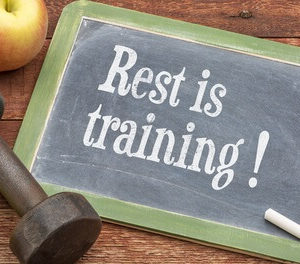Dangers of Sleep Deprivation
It takes about 4 months of regular physical exercise to help insomnia sufferers get a decent night’s sleep, scientists say at Northwestern University Feinberg School of Medicine. Consider exercise a long-term relationship where you have to keep at it and not get discouraged if you don’t get success immediately.
A recent study showed if you have existing sleep problems, aerobic exercise during the day does not result in an improved sleep experience that same night. Most previous studies that have focused on the daily effects of exercise and sleep have been done with healthy sleepers and not with people that have existing sleep problems.
People Exercise Less Following Sleepless Nights
This study also showed that people exercise less following nights with worse sleep. Poor sleeping doesn’t change aerobic capacity, but it alters people’s perception of their exertion, so they feel far more exhausted. And that sleeping for performance and exercise affects each other in both directions: long-term regular exercise is good for sleep but having a poor sleep can also lead to less exercise.
Long-term Regular Exercise is Good For Better Sleep
Researchers decided to examine the daily effect of exercise after learning that people with insomnia complained that the recommended exercise didn’t help them right away. The detailed findings are published in the Journal of Clinical Sleep Medicine. Volunteers claimed that they exercised hard and didn’t get better sleep at all. The research demonstrates that it was not so simple for insomnia sufferers to embrace the prevailing thought that exercise improves sleep.
Exercise Improves Sleeping
Insomnia sufferers have a heightened level of brain activity. Time is needed to re-establish the normal brain level that can facilitate sleep. Instead of using medications, that can induce sleep quickly, exercise can be a healthier way to gt better sleep. Exercise addresses the underlying problems of insomnia that medications do not.
Exercise is the best approach for the older population to combat insomnia. Insomnia drugs have been known to cause memory impairment and falls. The study required an analysis of data gathered by researchers during a 2010 clinical trial. That study showed aerobic exercise improved mood, sleep, and vitality over a 16-week period adults with insomnia ages 57 to 70.
Persistent With Exercise for Better Sleep
They learned that is that people with sleep disturbances have to be persistent with exercise. According to ACSM certified personal trainer Sylvain Cyr, “People have to understand that even if they don’t want to exercise, that’s the time they need to give it what they got. Get yourselves out there and just do it. Exercise will always help in the long run.”
-
 Rest and Recovery Podcast$15.75
Rest and Recovery Podcast$15.75

